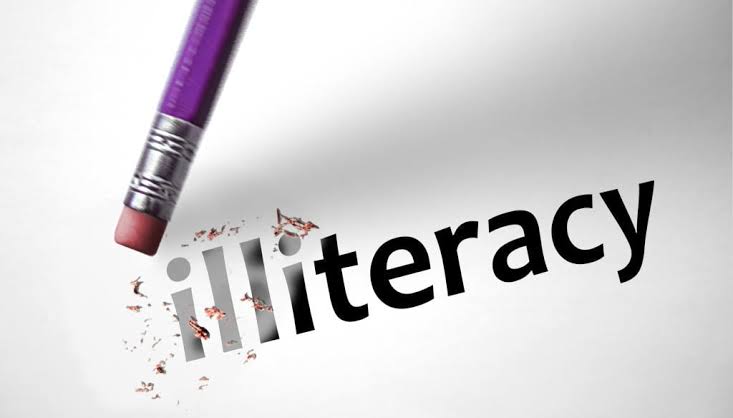COMBATING ILLITERACY IN NIGERIA: COMMUNITY INITIATIVES
By Lenient Amidu
Statistics have shown that about 31% of Nigeria’s population is illiterate. This is not encouraging as Nigeria is home to a diverse group of people with relations in different spheres of life. Illiteracy refers to the inability to read or write in any language, or a lack of proficiency in reading and writing skills. Causes of illiteracy may include: Limited or No access to education, learning disabilities, language barriers, socio-economic factors such as poverty or lack of resources, neurological or cognitive impairments.
The impact of illiteracy on individuals, communities, and societies, are significant including: limited job opportunities and economic mobility, difficulty accessing information and resources, social isolation and exclusion, reduced civic engagement and political participation, increased risk of poverty, poor health, and other social issues
Combating illiteracy in a nation is not a one-man job. It requires the collective effort of citizens and ruling systems. Community initiatives are key as they are tailored to the specific needs and goals of that community. For community initiatives to be successful, they have to be:
1. Inclusive
2. Collaborative
3. Accessible
4. Goal-driven
Some Community Initiatives include:
1. Volunteering and Mentorship: Literate volunteers and mentors can tutor or mentor individuals, either one-on-one or in small groups. Individuals can also be paired with literacy mentors for guidance and support. The sessions have to be based on age, gender and literacy level compatibility to ensure effectiveness.
2. Community Literacy Centers: Centers offering free or low-cost literacy classes, resources, and support can be established in key places in the community. These centers have to be well rounded. Certain facilities like Book Clubs, Reading Groups, Literacy Events, Workshops, etc will boost engagement and participation.
3. Partnerships with Local Organizations: Collaboration with schools, libraries, community centers, and businesses help reach a broader audience. Also, these partnerships help with funding and donations. The partnerships can be explored in form of community outreach programs, Literacy programs, Scholarship opportunities, etc
4. Literacy Resources and Materials: Access to literacy resources, such as books, educational materials, and online tools will be greatly beneficial. This is best done with the provision of public, school and National Libraries, Study centers, and Research institutions.
5. Sensitization programs: This can happen in various ways including creating awareness of the importance of education in communities that are biased against it , public campaigns, use of religious and ethnic leaders, etc.
Prominent Community Initiatives towards combating illiteracy in Nigeria are;
AREAi - promoting Nigeria's Largest Literacy Skills Development in Rural Communities.
CSDP (Community and Social Development Project)
NOGALSS (Nigerian Non-governmental Association For Literacy Support Services)
UFLP (UNIVA Functional Literacy Program)
NOUN (National Open University Of Nigeria)
There are also various initiatives spearheaded by student volunteers, organizations, schools, National Youth Service Corpers, and the likes in their various local communities. Combating illiteracy is not a day’s worth of work. It requires consistent systemic and local changes and actions over time.





